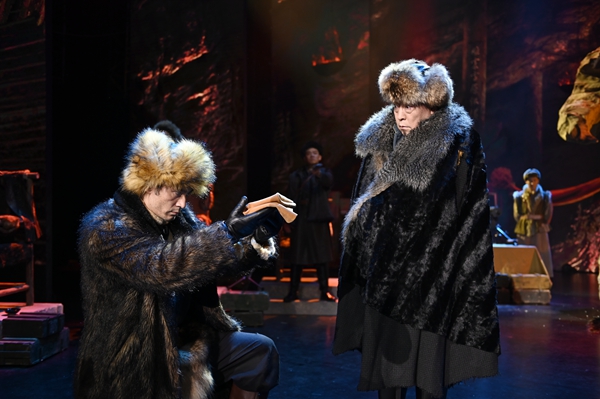Reframing the classics
By Wang Kaihao | China Daily | Updated: 2019-11-07 08:29

Bigger picture
Many of the roles in these classic movies featuring a realistic style are based on true stories. Li Xia's experiences are largely based on the ones of real-life agent Li Bai. He was executed by the Kuomintang just 20 days before Shanghai was taken over by the PLA in May 1949.
In the case of Yang Zirong, who in reality died on the battlefield shortly after his skirmish with the bandits, his name even remains unchanged in the novel. Nevertheless, his surviving relatives did not realize this national hero belonged to their family until 27 years later, when they saw the fallen hero's last surviving picture.
"These 'red classics' do not exclusively belong to any individual or group," Guo, the producer, adds. "They belong to the history of our republic."
Guests like Li Bai's wife and Yang's nephew, as well as actors and writers who involved in the original works, were invited onto the program to recall the old days and talk about how these classics were born. And as they talk, the warm and sentimental moments unfold to gradually build up the history of a country through the individual narratives.
For the show, Su Caiqing, an 87-year-old woman, was invited to be a guest. When she received a set of coded messages by radio in Yan'an in 1948, she did not recognize them as the final signals sent by Li Bai. More than 70 years later from the recording studio, she sends a message back to him: "The twilight you are expecting has come."
And the stories in the show have gone beyond the revolutionary years, and spanned decades to reflect a much broader view of national history.
For example, Red Sorghum, a novel by Nobel Prize-winning author Mo Yan which was adapted into a film by director Zhang Yimou, recalls one episode on the collective memories related to the War Against Japanese Aggression (1931-45) that took place in Shandong province.
The Ordinary World, a novel first published in 1986 which took writer Lu Yao five years to finish, charts the changes taking place in rural Shaanxi province. It tells of the persistent efforts local villagers make to escape poverty in their pursuit of happiness in the wave of reform and opening-up.
And Expectation, a 1990s TV series, successfully portrayed the strong spirit of Chinese women in contemporary society.
"When we look back on these figures again with the wealth of background information in the program," Pang Jingjun, deputy head of China Literature and Art Critics Association, says, "we see our show as a way to complement historical records. As the country continues to march on toward the future, it is always important to review the past."
Zhang Dexiang, a professor at the Communication University of China, says: "These attempts to review our history of art and culture should continue in the long-term, not just for the 70th anniversary. Images of some of our heroes from the olden days can be distorted over time. It's important to use new formats to let people truly understand them."
























